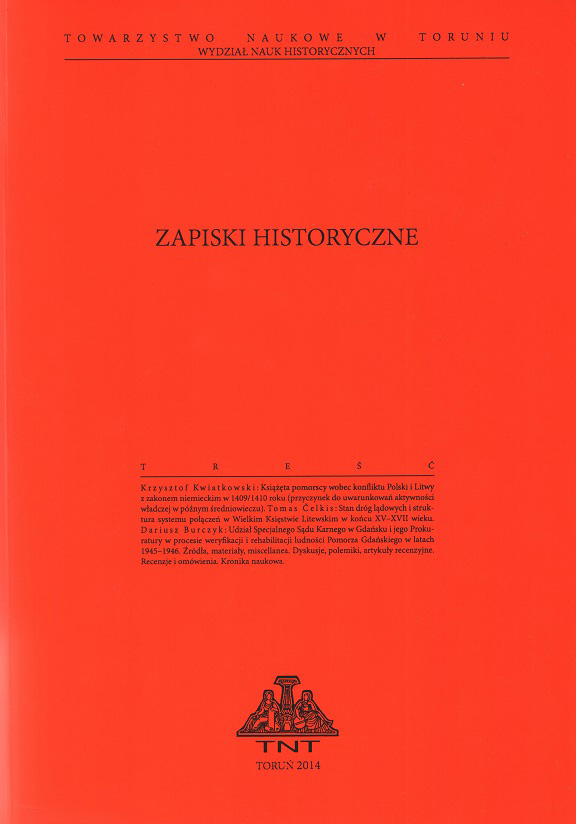Saksonia, Rzeczpospolita i Szwecja a koniec wojny północnej (1721–1732)
Saxony, the Polish-Lithuanian Commonwealth and Sweden and the End of the Great Northern War (1721–1732)
Author(s): Urszula KosińskaSubject(s): Diplomatic history, Political history, 18th Century
Published by: Towarzystwo Naukowe w Toruniu
Keywords: Augustus II the Strong; Frederick I of Sweden; Great Northern War; Treaty of Nystad; diplomacy; eighteenth century
Summary/Abstract: Diplomatic negotiations aimed at ending the Great Northern War, conducted by Saxony, the Polish-Lithuanian Commonwealth and Sweden, which in the years 1721–1732 were formally still in conflict despite the Treaty of Nystad concluded by Sweden and Russia in 1721, have not yet been analysed from the perspective of Saxon and Polish diplomacy. The aim of this article is to examine this process, mainly in the light of primary sources of Saxon origin. Contrary to the popular belief that the many years of neglect to solve this issue were due solely to the weakness of the Polish-Lithuanian Commonwealth, the author proves that there were many other factors involved. Some of the most important ones involved different political interests of the Commonwealth, Saxony and Sweden, and the changing international circumstances, including alliances, in the years 1721–1732. The article also presents how the original form of the peace agreement was developed. Instead of the signing of a peace treaty, it resulted in an exchange of royal letters between Sweden and, respectively, Saxony in 1729 and the Commonwealth in 1732. They included a declaration to ‘restore the old friendship’. Such a form of peace agreement, whose aim was to bypass Russian mediation, became the source of a common misconception that the Polish-Lithuanian Commonwealth was not a party in the Great Northern War.
Journal: Zapiski Historyczne
- Issue Year: 86/2021
- Issue No: 4
- Page Range: 29-54
- Page Count: 26
- Language: Polish

